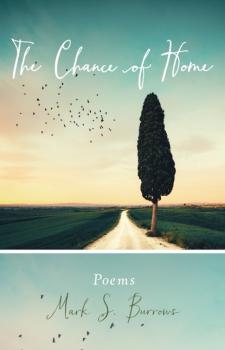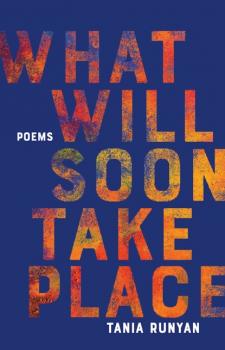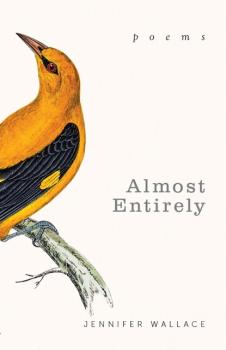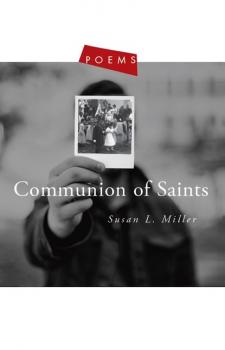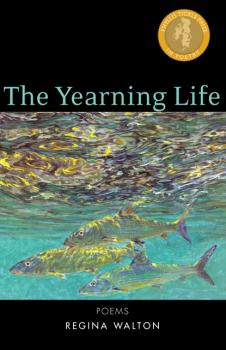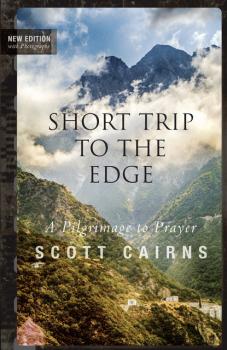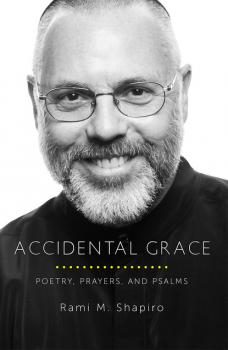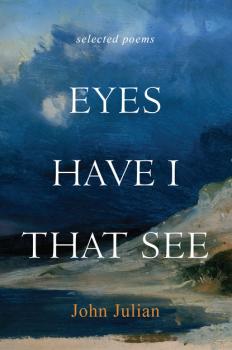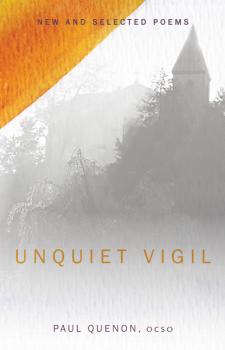ТОП просматриваемых книг сайта:
Зарубежные стихи
Различные книги в жанре Зарубежные стихи, доступные для чтения и скачиванияАннотация
These poems remind us that “home” is a way of being in this world. It finds expression in the inner light that carries us through dark seasons and in what inspires us to risk life in the face of death. Many of these poems come from a long looking at the familiar and the ordinary, a patient listening for traces of a beauty that might still save us. They ponder the resilience that lies at the heart of the natural world, as well as in our desire to thrive amid the distractions that pressure us in our lives. In an over-saturated age like ours, they invite us to linger at the edges of silence, and wonder what it means that we are not made for reason alone, but “for what song can bring of solace and delight.”
“Call these meditative poems Burrows’ ‘Yes’ to the given world, his ongoing record of those instances of connectedness when we are at ‘home’ in what Pessoa called ‘the astonishing reality of things…’” —Robert Cording, poet and author of Walking with Ruskin and Only So Far
“Mark S. Burrows’ poems offer the reader both invitation and gift – when you say yes, the treasures lay themselves out like a banquet for the heart.” —Christine Valters Paintner, Online Abbess of Abbey of the Arts and author of The Wisdom of the Body: A Contemplative Journey to Wholeness for Women
“Call these meditative poems Burrows’ ‘Yes’ to the given world, his ongoing record of those instances of connectedness when we are at ‘home’ in what Pessoa called ‘the astonishing reality of things…’” —Robert Cording, poet and author of Walking with Ruskin and Only So Far
“Mark S. Burrows’ poems offer the reader both invitation and gift – when you say yes, the treasures lay themselves out like a banquet for the heart.” —Christine Valters Paintner, Online Abbess of Abbey of the Arts and author of The Wisdom of the Body: A Contemplative Journey to Wholeness for Women
Аннотация
What Will Soon Take Place is an imaginative journey through the book of Revelation. It offers a poet's view of the prophetic, not in the sense of seeking out clues to the «end times,» but a means of taking this strange, fantastic book of scripture and letting it read its way into personal lives.
Аннотация
Rooted in the grit of urban Baltimore and the forests of rural Massachusetts, these poems remind us that life's tensions and polarities are energies we carry within ourselves.
These are poems of witness and commentary, conversation and meditation. They offer moments of close looking, and of looking away; of loving, and of bungled attempts to be more loving. They call us to look long and hard – and generously – at our lives. Written with radiant honesty and fierce tenderness, they suggest a path of inner discovery where mystery awaits us in the ordinary.
These are poems of witness and commentary, conversation and meditation. They offer moments of close looking, and of looking away; of loving, and of bungled attempts to be more loving. They call us to look long and hard – and generously – at our lives. Written with radiant honesty and fierce tenderness, they suggest a path of inner discovery where mystery awaits us in the ordinary.
Аннотация
This collection of poems explores the saints of the church's history and contemporary persons who embody something of their charism. Three sections are arranged around the themes of the three «theological virtues»:—Faith, portrayed as a source of strength in times of trial— Hope, the darkest in the book, dealing with matters of the body's frailty, illness, social discrimination, and the search for a way to live within the constraints of society— Love, offering a panoply of outward-looking characters who give to others in radical or personal ways The volume ends with a cycle of Franciscan poems that offer a model for the Christian life, not simply in terms of individual moments but also as a complete life-cycle of practice and prayer.
Аннотация
"These are meditative poems that seem to rise from a long and deep looking at life, in its most ordinary and familiar moments. They invite us into the gaze, suggesting how the surfaces of things might reveal stronger truths for those who know to wait and wonder. These pages call us to consider our lives as `lent by the mystery and borrowed back,' as the poet puts it, showing us what yearning might require—and yield." —Mark S. Burrows, Editor for Paraclete Poetry
Аннотация
Poet and literature professor Scott Cairns ran headlong into his midlife crisis – a fairly common experience among men nearing the age of fifty—while walking on the beach with his Labrador. His was not a desperate attempt to recapture youth, filled with sports cars and younger women. Instead, Cairns realized his spiritual life was advancing at a snail's pace and time was running out. Midlife crisis for this this Baptist turned Eastern Orthodox manifested as a desperate need to seek out prayer.
Originally published in 2007, this new, expanded edition of Short Trip to the Edge is the story of Scott's spiritual journey to the mystical island of Mt. Athos. With twenty monasteries and thirteen sketes scattered across its sloping terrain, the Holy Mountain was the perfect place for Scott to seek out a prayer father and discover the stillness of the true prayer life. Told with wit and exquisite prose, his narrative takes the reader from a beach in Virginia to the most holy Orthodox monasteries in the world to a monastery in Arizona and back again as Scott struggles to find his prayer path. Along the way, Cairns forged relationships with monks, priests, and fellow pilgrims.
"Scott Cairns is not only one of the most vital poets of our time but also a prose writer of uncommon vision, and in Short Trip to the Edge, his account of his pilgrimage to the Holy Mountain of Athos, in northern Greece, he weaves together a personal history of faith, a wealth of learning, and the wisdom of the ages to create a book for spiritual seekers from every religious denomination. What better guide, and travel companion, than Scott Cairns? I would follow him to the edge – and beyond." – Christopher Merrill, author of Things of the Hidden God: Journey to the Holy Mountain
"Mt Athos is 'the edge' in more ways than one, a place both beautiful and ruggedly challenging, alive with spiritual power that shares the same qualities. Cairns is the ideal guide – relaxed, invitingly conversational, and often amused, but always evoking the awe that these mysteries deserve." – Frederica Mathewes-Green
"In Short Trip To The Edge, Scott Cairns pulls back the curtain and gives us a glimpse of the spiritual energy present on the Holy Mountain. He approaches his prose with the soul and skill of a poet. It is at once simple and profound—accessible and ineffable. Scott has the boldness to confront the deepest parts of our human nature with fierce honesty and humor. It's a place where «pilgrims are a mixed bag,» holy relics make the heart race and true spirituality is an «acquired taste.» The reader, (or should I say pilgrim) is invited to travel along a beautiful and potentially frightening road into the heart of silence, repentance and prayer. There is a palpable sense of being there: surrounded by a timeless chorus of voices chanting on The Holy Mountain, praying for the life of the world. One slowly loses the desire to arrive and begins to embrace the possibility of «always becoming.» Scott Cairns pours out his soul in this brilliant and much needed book. It is well worth the taking this short trip to the edge!" —Jonathan Jackson, star of the hit ABC show Nashville and author of The Mystery Of Art
"A Short Trip to the Edge is an exceptional and compelling book. Scott Cairns has a poet's eye and a story-tellers flair, so that mystical experience and profound theology are bodied forth in memorable images and vivid scenes, instead of being lost in abstraction. This book witnesses to the way ancient truths can become vivid, true and life-changing in the here and now. This is a short trip you will never forget." —Rev. Dr. Malcolm Guite, Girton College, Cambridge
Originally published in 2007, this new, expanded edition of Short Trip to the Edge is the story of Scott's spiritual journey to the mystical island of Mt. Athos. With twenty monasteries and thirteen sketes scattered across its sloping terrain, the Holy Mountain was the perfect place for Scott to seek out a prayer father and discover the stillness of the true prayer life. Told with wit and exquisite prose, his narrative takes the reader from a beach in Virginia to the most holy Orthodox monasteries in the world to a monastery in Arizona and back again as Scott struggles to find his prayer path. Along the way, Cairns forged relationships with monks, priests, and fellow pilgrims.
"Scott Cairns is not only one of the most vital poets of our time but also a prose writer of uncommon vision, and in Short Trip to the Edge, his account of his pilgrimage to the Holy Mountain of Athos, in northern Greece, he weaves together a personal history of faith, a wealth of learning, and the wisdom of the ages to create a book for spiritual seekers from every religious denomination. What better guide, and travel companion, than Scott Cairns? I would follow him to the edge – and beyond." – Christopher Merrill, author of Things of the Hidden God: Journey to the Holy Mountain
"Mt Athos is 'the edge' in more ways than one, a place both beautiful and ruggedly challenging, alive with spiritual power that shares the same qualities. Cairns is the ideal guide – relaxed, invitingly conversational, and often amused, but always evoking the awe that these mysteries deserve." – Frederica Mathewes-Green
"In Short Trip To The Edge, Scott Cairns pulls back the curtain and gives us a glimpse of the spiritual energy present on the Holy Mountain. He approaches his prose with the soul and skill of a poet. It is at once simple and profound—accessible and ineffable. Scott has the boldness to confront the deepest parts of our human nature with fierce honesty and humor. It's a place where «pilgrims are a mixed bag,» holy relics make the heart race and true spirituality is an «acquired taste.» The reader, (or should I say pilgrim) is invited to travel along a beautiful and potentially frightening road into the heart of silence, repentance and prayer. There is a palpable sense of being there: surrounded by a timeless chorus of voices chanting on The Holy Mountain, praying for the life of the world. One slowly loses the desire to arrive and begins to embrace the possibility of «always becoming.» Scott Cairns pours out his soul in this brilliant and much needed book. It is well worth the taking this short trip to the edge!" —Jonathan Jackson, star of the hit ABC show Nashville and author of The Mystery Of Art
"A Short Trip to the Edge is an exceptional and compelling book. Scott Cairns has a poet's eye and a story-tellers flair, so that mystical experience and profound theology are bodied forth in memorable images and vivid scenes, instead of being lost in abstraction. This book witnesses to the way ancient truths can become vivid, true and life-changing in the here and now. This is a short trip you will never forget." —Rev. Dr. Malcolm Guite, Girton College, Cambridge
Аннотация
"I think that Phyllis was a poet first and foremost, before anything else. Here she has attentively gathered all of the poems she wished to preserve from the last half century. A handful of them were written in the last few years. This book should surprise a lot of people. Its honesty leaves me breathless." —Jon M. Sweeney, editor of Phyllis Tickle: Essential Spiritual Writings (Orbis), and author of the biography, Phyllis Tickle(forthcoming)
"Fierce-minded, Phyllis Tickle's poems place us in the most central of human concerns, namely the lifelong search for rest, fellowship, peace, and grace. Her best poems—"The Cranes," for instance—teach us that we, too, are only «migratory,» moving from one place to another and that there has always been a voice «like manna…/Come from another land/To say,/‘This way! This way!'» Her poems, like her whole life, heeded that voice, inviting us all to follow. " —Jeff Hardin, author of Notes for a Praise Book and Restoring the Narrative
"Phyllis Tickle uses words as Vermeer used paint; both bring a unique light to their work. The page became a canvas, and master writer Phyllis Tickle's pen brushed her life, family, and friends, then framed them in a sense of place. Hungry Spring and Ordinary Song reaches from the bottom of her soul to the top of her heart and mind. Phyllis never holds anything back. This book is a masterpiece that will hang in our memory galleries forever." —Margaret Britton Vaughn, Poet Laureate of Tennessee
Phyllis Tickle (1934-2015) was a writer, poet, book publisher, and journalist. She was the founding religion editor at Publishers Weekly and a leading voice in the Emerging Christianity movement. She was also the author of nearly forty books including The Divine Hours series and The Great Emergence. The mother of seven children, for 38 years she lived with her husband, Sam, on The Farm in Lucy, TN.
"Fierce-minded, Phyllis Tickle's poems place us in the most central of human concerns, namely the lifelong search for rest, fellowship, peace, and grace. Her best poems—"The Cranes," for instance—teach us that we, too, are only «migratory,» moving from one place to another and that there has always been a voice «like manna…/Come from another land/To say,/‘This way! This way!'» Her poems, like her whole life, heeded that voice, inviting us all to follow. " —Jeff Hardin, author of Notes for a Praise Book and Restoring the Narrative
"Phyllis Tickle uses words as Vermeer used paint; both bring a unique light to their work. The page became a canvas, and master writer Phyllis Tickle's pen brushed her life, family, and friends, then framed them in a sense of place. Hungry Spring and Ordinary Song reaches from the bottom of her soul to the top of her heart and mind. Phyllis never holds anything back. This book is a masterpiece that will hang in our memory galleries forever." —Margaret Britton Vaughn, Poet Laureate of Tennessee
Phyllis Tickle (1934-2015) was a writer, poet, book publisher, and journalist. She was the founding religion editor at Publishers Weekly and a leading voice in the Emerging Christianity movement. She was also the author of nearly forty books including The Divine Hours series and The Great Emergence. The mother of seven children, for 38 years she lived with her husband, Sam, on The Farm in Lucy, TN.
Аннотация
Spiritual teacher, writer, rabbi, and poet, Rami Shapiro has taught thousands of people in workshops across North America for a quarter century. His books have sold in the hundreds of thousands. But before he did any of those things he was writing poems, psalms, and prayers that were anthologized in the Jewish siddurim of several different denominations. He did most of this work while he was a pulpit rabbi in Florida. Still today, every week at services, Jews in the Reform and Reconstructionist movements read Rami’s verse in their prayer books. Now, those spiritual teachings have been gathered into one volume, incorporating all of Rami’s poetic work over the course of his long and varied career. The result is startling—as if we’ve discovered a new spiritual teacher of great importance, all in verse.
Аннотация
From rough folk-verse to high-flown poesy, from a nine-line rhyme to a six-hundred-line epic, both the style and genre of the poetry in this volume cover a broad range of poetic possibility. This is the first volume of John Julian’s poetry ever published, revealing an important new American poetic voice.
“Poignant, full of grit and edge and those occasional bolts of energy that tear words into their primal elements and then radiate light.” —Mark S. Burrows, poet, professor, translator of Rilke
"John Julian is of a long and noble line, that of the Priest-Poet. He is the bearer of the somewhat weighty mantle that has been carried by Herbert, Donne, Hopkins, Merton, R.S. Thomas and Roseliep. In these poems he truly gives life to Rilke’s definition of what a poet does: he praises!" —Jamie Parsley, poet, Episcopal priest, author of Fargo, 1957
"Sometimes he sings with the bleak elegaic clarity of a somber monk, but then catches like a sob in the throat with some sharp-poignant word. Savor this banquet, bitter and sweet." —Tobias Stanislas Haller, BSG, Vicar of St. James, Bronx, New York
“Poignant, full of grit and edge and those occasional bolts of energy that tear words into their primal elements and then radiate light.” —Mark S. Burrows, poet, professor, translator of Rilke
"John Julian is of a long and noble line, that of the Priest-Poet. He is the bearer of the somewhat weighty mantle that has been carried by Herbert, Donne, Hopkins, Merton, R.S. Thomas and Roseliep. In these poems he truly gives life to Rilke’s definition of what a poet does: he praises!" —Jamie Parsley, poet, Episcopal priest, author of Fargo, 1957
"Sometimes he sings with the bleak elegaic clarity of a somber monk, but then catches like a sob in the throat with some sharp-poignant word. Savor this banquet, bitter and sweet." —Tobias Stanislas Haller, BSG, Vicar of St. James, Bronx, New York
Аннотация
Br. Paul Quenon, OSCO, has assembled a collection of his poems seasoned through five decades of living a monastic life. These are litanies of life, work, patience, love and prayer.
“These poems pinpoint the tensions inherent in a spiritual life. The self must be present and yet the self must be willing to be negated. One seeks knowledge but also freedom from knowledge. One must be at home with what is said through silence. These are some of the mysteries of faith and the words of these poems invite me into them. By reading, we partake of these words and much more. It is a joy to have this book.” -Maurice Manning, author of The Common Man, finalist for the Pulitzer Prize in poetry, and The Gone and the Going Away
“The poems of Unquiet Vigil rise out of a more intense experience of reality, evoke aspects of that reality not universally acknowledged, and re-express them in exquisite and economical language.” -Michael Casey, OCSO, author of Stranger to the City
Born in West Virginia, Br. Paul Quenon, OCSO, entered the Trappists in 1958 at the Abbey of Gethsemani in Kentucky, where Thomas Merton was his Novice Master. He has been publishing poems and photographs for the last twenty years.
“These poems pinpoint the tensions inherent in a spiritual life. The self must be present and yet the self must be willing to be negated. One seeks knowledge but also freedom from knowledge. One must be at home with what is said through silence. These are some of the mysteries of faith and the words of these poems invite me into them. By reading, we partake of these words and much more. It is a joy to have this book.” -Maurice Manning, author of The Common Man, finalist for the Pulitzer Prize in poetry, and The Gone and the Going Away
“The poems of Unquiet Vigil rise out of a more intense experience of reality, evoke aspects of that reality not universally acknowledged, and re-express them in exquisite and economical language.” -Michael Casey, OCSO, author of Stranger to the City
Born in West Virginia, Br. Paul Quenon, OCSO, entered the Trappists in 1958 at the Abbey of Gethsemani in Kentucky, where Thomas Merton was his Novice Master. He has been publishing poems and photographs for the last twenty years.

